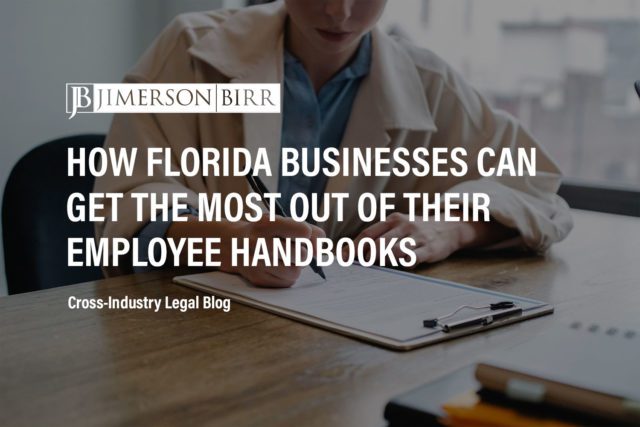What do pension, retirement, and profit-sharing plans encompass?
Pension, retirement, and profit-sharing plans are essential components of employee benefits packages in Florida. These plans offer employees long-term financial security and ensure their well-being after retirement. Pension plans are predefined benefit programs where employers guarantee a certain level of retirement income based on factors like years of service and salary. Retirement plans, such as 401(k) and IRA plans, are defined contribution plans where employees contribute a portion of their earnings, often with employer-matching contributions. Under Florida Statute § 121.021(36)(a), profit-sharing plans allow employers to share a portion of their profits with employees, usually disbursed into individual retirement accounts.
In Florida employment law, employers must ensure that these plans adhere to state regulations and federal laws, such as the Employee Retirement Income Security Act (ERISA), which sets minimum retirement and pension plan standards.
An example situation under Florida and federal law would be an employer offering a pension plan that must comply with the funding, participation, and vesting requirements under ERISA and Florida state regulations.
Need help with training, compliance, or litigation to protect your workplace? Schedule your consultation today with a top employment law attorney.
Which laws, rules, and regulations apply to pension, retirement, and profit-sharing plans?
In Florida, federal and state laws regulate pension, retirement, and profit-sharing plans. At the federal level, the primary governing law is the Employee Retirement Income Security Act (ERISA), which sets minimum standards for pension and retirement plans, including participation, vesting, benefit accrual, and funding requirements.
At the state level, Florida has specific regulations that govern public employee retirement systems, such as the Florida Retirement System (FRS), a defined benefit plan for state employees pursuant to Florida Statutes §§ 121.011-121.591.
In summary, pension, retirement, and profit-sharing plans in Florida are subject to a mix of federal and state laws designed to ensure the proper administration and management of these plans for the benefit of employees.
What common issues associated with pension, retirement, and profit-sharing plans lead to litigation against employers?
- Plan Compliance: Employers may fail to comply with the ERISA and relevant Florida statutes, such as Florida Statutes Chapter 735 governing pension, retirement, and profit-sharing plans, leading to litigation.
- Fiduciary Duty Violations: Plan fiduciaries, such as employers and plan administrators, may breach their fiduciary duties to plan participants, which can result in litigation.
- Improper Benefit Calculations: Errors in calculating retirement benefits, leading to underpayment or overpayment, may result in disputes and litigation.
- Discrimination: Employers may face litigation if pension, retirement, or profit-sharing plans are administered in a discriminatory manner, violating federal laws such as Title VII of the Civil Rights Act or the Age Discrimination in Employment Act (ADEA).
What are the prerequisites to file a lawsuit regarding pension, retirement, and profit-sharing plans, and what legal defenses may employers assert?
Before filing a lawsuit regarding pension, retirement, or profit-sharing plans, employees must meet specific legal prerequisites and requirements:
- Exhaustion of Administrative Remedies: Employees must generally exhaust administrative remedies, such as filing a claim with the plan administrator or the U.S. Department of Labor, before initiating litigation.
- Timeliness: Lawsuits must be filed within the applicable statute of limitations period under ERISA or relevant Florida statutes.
Employers may assert several affirmative legal defenses in response to claims deriving from pension, retirement, or profit-sharing plans:
- Statute of Limitations: Employers can assert that the employee’s claim is time-barred if not filed within the applicable statute of limitations period.
- Compliance with Plan Terms and Applicable Laws: Employers may argue that they complied with the terms of the pension, retirement, or profit-sharing plan and all applicable laws, negating any liability.
- No Fiduciary Duty Breach: Employers may defend themselves by asserting that they did not breach any fiduciary duties owed to plan participants.
- Safe Harbor Provisions: Employers may claim protection under certain safe harbor provisions of ERISA or other relevant laws that shield them from liability if specific conditions are met.
To determine whether your unique situation may necessitate litigation or another form of specialized advocacy, please contact our office to set up your initial consultation.
What measures must employers take to comply with laws concerning pension, retirement, and profit-sharing plans?
To ensure compliance with pension, retirement, and profit-sharing plans, Florida employers must implement the following measures:
- Establish a Written Plan Document: Employers should have a formal, written plan document detailing the terms and conditions of their pension, retirement, and profit-sharing plans.
- Maintain Fiduciary Responsibility: Employers must act in the best interest of the plan participants and beneficiaries, fulfilling their fiduciary duties under ERISA.
- Provide Necessary Disclosures: Employers must ensure that plan participants receive adequate information about the plan, including a summary plan description (SPD) and an annual report.
- Monitor Plan Administration: Employers should regularly review their plan administration to ensure compliance with federal regulations and maintain accurate records.
Please contact our office to set up your initial consultation to see what forms of legal advocacy or intervention may be available for your unique situation.
Frequently Asked Questions
What are the consequences for employers who fail to comply with pension, retirement, and profit-sharing plan regulations?
Employers who fail to comply with regulations may face penalties, including monetary fines, plan disqualification, or potential lawsuits from plan participants.
Can a Florida employer terminate a pension, retirement, or profit-sharing plan?
Yes, an employer can terminate a plan, but they must follow specific procedures under ERISA and the Internal Revenue Code.
Have more questions about employment law training, compliance, or litigation?
Crucially, this overview of pension, retirement, and profit-sharing plans does not begin to cover all the laws implicated by this issue or the factors that may compel the application of such laws. Every case is unique, and the laws can produce different outcomes depending on the individual circumstances.
Jimerson Birr attorneys guide our clients to help make informed decisions while ensuring their rights are respected and protected. Our lawyers are highly trained and experienced in the nuances of the law, so they can accurately interpret statutes and case law and holistically prepare individuals or companies for their legal endeavors. Through this intense personal investment and advocacy, our lawyers will help resolve the issue’s complicated legal problems efficiently and effectively.
Having a Jimerson Birr attorney on your side means securing a team of seasoned, multi-dimensional, cross-functional legal professionals. Whether it is a transaction, an operational issue, a regulatory challenge, or a contested legal predicament that may require court intervention, we remain tireless advocates at every step. Being a value-added law firm means putting the client at the forefront of everything we do. We use our experience to help our clients navigate even the most complex problems and come out the other side triumphant.
If you want to understand your case, the merits of your claim or defense, potential monetary awards, or the amount of exposure you face, you should speak with a qualified Jimerson Birr lawyer. Our experienced team of attorneys is here to help. Call Jimerson Birr at (904) 389-0050 or use the contact form to schedule a consultation.
Here are some blogs written by JB attorneys that provide more information about employment law:
- Independent Contractor or Employee: Know the Difference (jimersonfirm.com)
- Rescinding Job Offers in At-Will Employments in Florida | Jimerson Birr (jimersonfirm.com)
- Tips for Drafting Employee Handbooks in Florida | Jimerson Birr (jimersonfirm.com)
- Understanding The EEOC Process: Employee Sexual Harassment And Sexual Discrimination Claims In The Era Of #MeToo (jimersonfirm.com)
- Contesting OSHA Violations and OSHA Citations: A Guide To OSHA Employer Rights (jimersonfirm.com)
- What Do Contractors Need to Know About Employee Duty of Loyalty and Ability to Compete | Jimerson Birr (jimersonfirm.com)


We live by our 7 Superior Service Commitments
- Conferring Client-Defined Value
- Efficient and Cost-Effective
- Accessibility
- Delivering an Experience While Delivering Results
- Meaningful and Enduring Partnership
- Exceptional Communication Based Upon Listening
- Accountability to Goals











